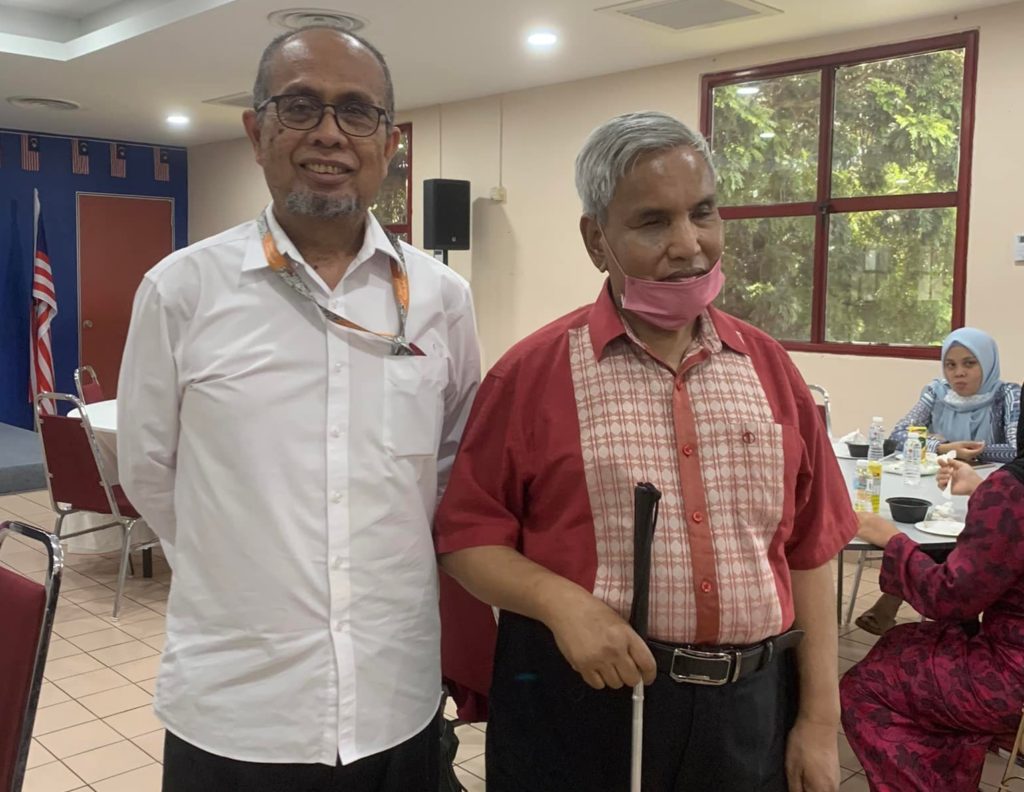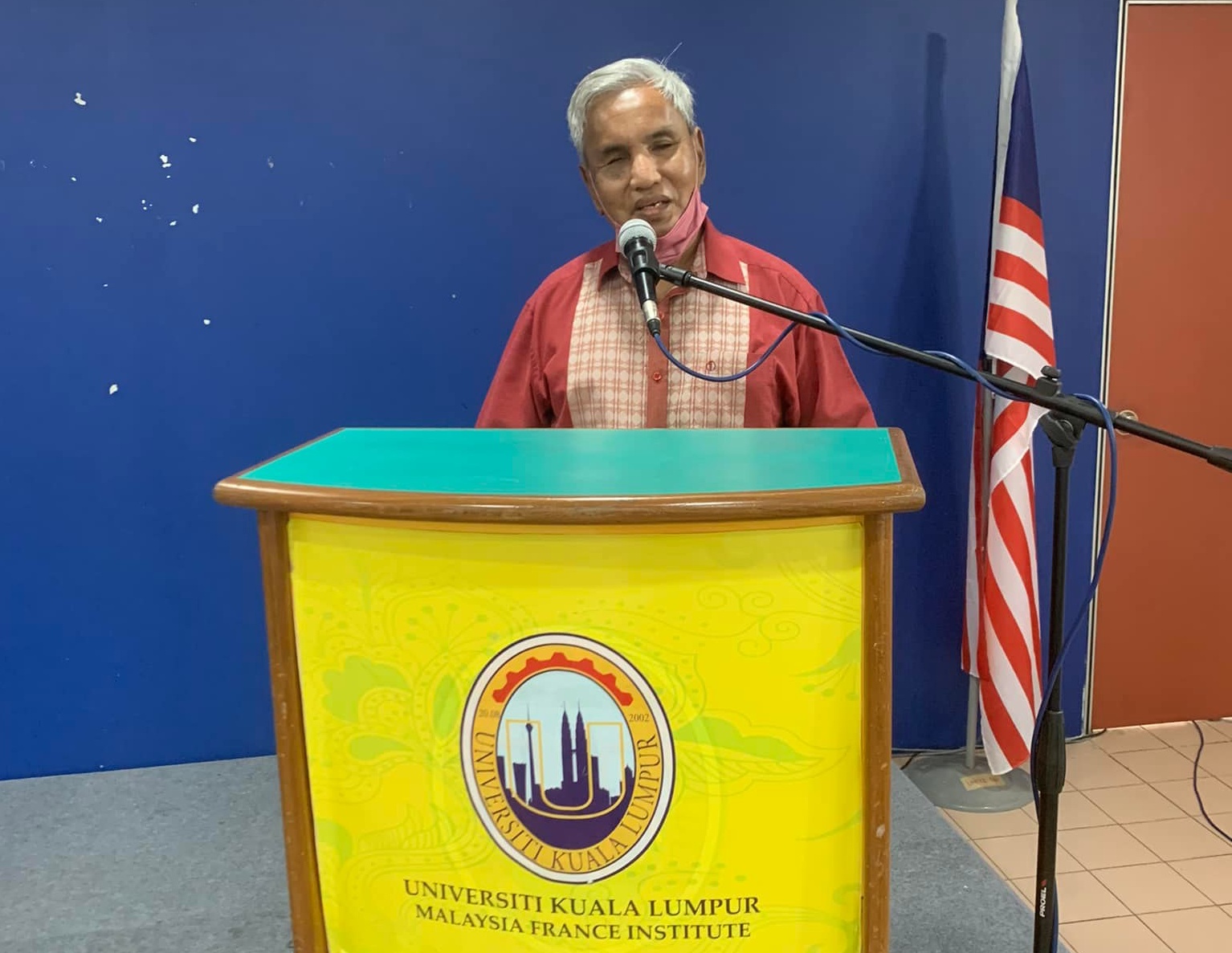Dr Zakaria – living proof of hope for inclusivity is still possible
He was born normal, but when he suffered from vision loss at the age of six back in the 60s, he had to adjust to living independently, at the time.
Like any other innocent kid, never crossed in Dr Zakaria Osman’s mind – during that time, what his future might unfold with the disability caused by the chicken pox virus that infected both of his eyes.
Thankfully for his parents and grandparents, who had been supportive, especially in regards to education, he told, there was a promising future ahead of him.
“It was a very rare scene to find youngsters at that point, sent to school for education – maybe one of the reasons was financial instability. It was thankfully a different story for my parents who brought education to the fore, encouraging my siblings and me to complete schooling.
“Despite my sight loss, my grandfather, as luck would have it, brought me to a community welfare centre, and for the first time, we were introduced to special education, specifically for disabled kids,” shared Dr Zakaria, who is invariably courteous and soft-spoken.
Dr Zakaria is a Malay Literature expert and was attached to Universiti Kuala Lumpur Malaysia France Institute (UniKL MFI) until retiring in May 2022 as a lecturer.
Describing the journey prior to joining UniKL MFI, Dr Zakaria said he almost gave up the attempt towards finding a stable career in despair. It principally came down to a solitary reason – disability.

Dr Zakaria (right) in a photo session with the Dean of UniKL MFI, Prof. Dr. Jamel Othman (left) during his retirement ceremony, recently.
His more than 23 years of service at UniKL MFI, would make him living proof of how inclusivity eventually has thrived in Malaysia.
Imagine being a visually impaired person, completing education up to receiving a Master of Malay Literature as well as Doctor of Philosophy (PhD) in Malay Literature and Philosophy of Arts is worthy to be considered meritorious.
The funny thing is, he shared, it was never in his intention to embark on further studies. But, he was in dire straits to land a job, as in the 19th century, hiring disabled people was quite still disdained.
“I grew up in a poor family with nine siblings, and we relied on rubber tapping proceeds to make ends meet. As a second-born child, I felt a responsibility to bear the cost of my siblings ’education.
“To lay a job for a sightless person, was a glimmer of hope. Needless to say, tons of resumes were sent to companies and employers, but to no avail. Furthering my studies for a master’s degree was the last resort to survive as at the same time, I could conduct a fellowship which earned me more than RM1,000 per month,” he shared while adding that selling snacks from house to house was an alternative to earning a living.
The endeavours of reversing his course of life finally came to light, at the moment he attained the title of philosophy doctorate in late 1998. It was a scarce setting for Malaysia to find a disabled person with a PhD like a ‘normal’ person would do.
Let alone establish concrete acceptance towards persons with disabilities (PWD) in the workplace.
“However, I am proud to say that Majlis Amanah Rakyat (MARA) was the first institution to offer me a sustainable job as a lecturer at UniKL MFI, just a week after my PhD convocation. My hope was rekindled, again, that institutions and communities would accept people with disabilities.
“Not a single day did I feel discriminated; in fact, I felt equally treated. I guess, Malaysia has eventually embraced the strengths of disabled members to fit into the society,” he proudly shared.
The skills that he gained and has, to ensure education for future generations remains served, are beyond words.
Who would have thought that a visionless person could type an email the same way an average person would? Who would imagine a blind person willing to commute alone via public transport from Sentul to Bangi – where the UniKL MFI is located, at the break of the dawn?
Describing those efforts, Dr Zakaria implied: “Doubt stems from people’s inability to acknowledge the achievement of the disabled individual, who is typically judged based on the disability itself.
“This was the problem with our employers and society back then. I hope that UniKL can be well prepared for achieving the disabled community’s integration into society.
“There will be times when more students with disabilities apply to UniKL for further education. I hope UniKL can prepare for that,” he remarked.
UNIVERSITI KUALA LUMPUR
1016, Jalan Sultan Ismail,
50250 Kuala Lumpur
+603 - 2175 4000
+603 - 2175 4001
CONNECT WITH #UniKL



